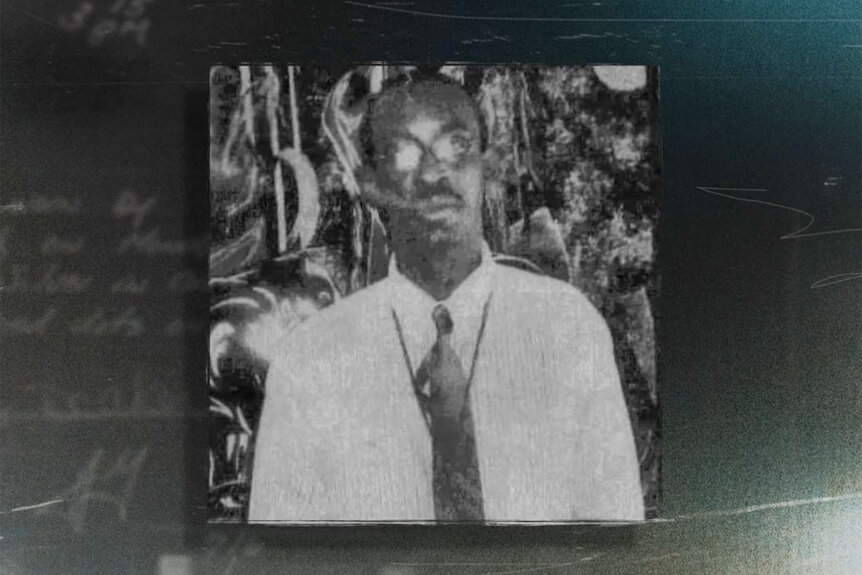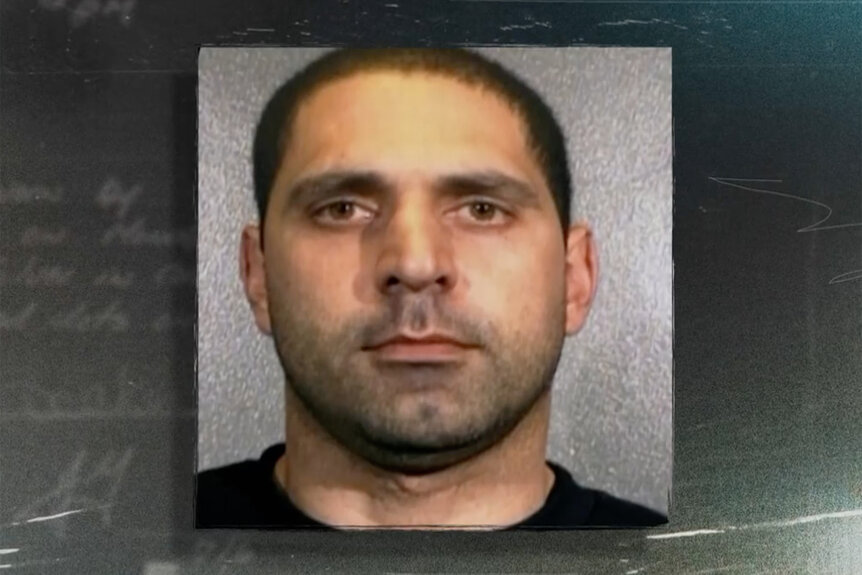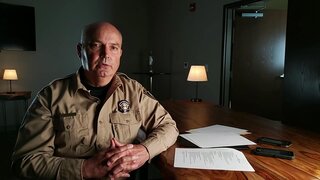Create a free profile to get unlimited access to exclusive videos, breaking news, sweepstakes, and more!
Who Was The 'Serial Stabber' Terrorizing 3 States — And What Was He After?
When multiple Black men were stabbed in Michigan, police suspected they had a serial attacker on their hand. Then, the stabbings moved to Virginia.
In the summer of 2010, police in Flint, Michigan raced to bring an end to a series of brazen stabbings that left several men dead and others seriously wounded.
On July 30, Frank Kellybrew, 60, was discovered dead near a restaurant dumpster. Kellybrew, investigators learned, had been laid off from his job at General Motors and was living at a local motel close to where he was found.
Officials found a trail of blood near his body along with a bag of snacks bought around 3:20 a.m. by Kellybrew from a nearby store. There were no signs of a robbery.
“We believe he was probably attacked and stabbed on his way back to the motel,” Randy Kimes, retired Detective Sgt., Flint Township PD, told “Twisted Killers,” airing Thursdays at 9/8c on Oxygen.
A day later, a report of another stabbing came in. The victim, 17-year-old Etwan Wilson, was transported to a local hospital in critical condition. Personal valuables had been untouched.
Detectives had no reason to connect the two stabbings at that time, according to Leigh Golden, Captain, City of Flint PD.
But a day later, Arnold Minor, 49, was attacked by a man with a knife at 2 a.m. as he was walking home following a family gathering.
“In the ambulance all he was able to say at that time was that it was a white guy who stabbed him,” said Golden. Arnold died from a stab wound to his chest and abdomen upon arrival at Hurley Medical Center.
A surveillance camera at a market near the crime scene revealed a suspicious vehicle. A dark SUV had turned around and sped off at the time of the stabbing.
Detectives working the three separate cases compared notes. “Investigators are looking for patterns,” said former LAPD homicide investigator Tracey Benjamin. “We have Black males, the time of day, location, weapon. Is it possible that the same suspect could have been involved in each scene?”
Wilson survived his attack and shared valuable information with police. The teenager described his attacker, who’d stopped to ask for directions, as a white man in his 20s or 30s who was clean-shaven with a very large build. He said he was stabbed so hard and with so much force he was lifted off the ground.
Golden reviewed recent stabbing cases in Flint and found that there had been 11 since May. Five had resulted in homicides, including David Motley, 31, Emmuel Mohammad, 59, and Darwin Marshall, 43.
Police had no suspects but Golden formulated a theory about the attacker. “It appears like he's stabbing them for sport,” she told producers. “I went to my lieutenant and told him that I thought we had a serial killer in the city of Flint.”
The fact that victims were left alive made this case remarkable.
“For most serial killers, the killing is the actual goal,” said Dr. Kate Termini, a forensic psychologist. “But for this killer their motive and their M.O. is very different.”
A task force was formed to get the attacker off the streets ASAP. Allan Ogg, a retired Detective Sgt., Michigan State Police, headed the team of more than two dozen investigators. After the task force was formed, there were no more stabbings in Flint. But on August 9, Flint investigators received a call from the Leesburg Virginia PD reporting that there’d been three stabbings there within a few days there. They were similar to the Flint stabbings.
On August 3, Tony Kage, a young Black man was stabbed in his side while jogging in the city’s business area. Like the other two victims in Leesburg, Kage survived the attack.
“All three provided a very similar description of the suspect,” said Joe Price, retired Chief of Police, Leesburg PD. Each victim said the assailant was white and driving a dark SUV.
On August 7, the task force got a call from Ohio police reporting that there’d been a stabbing near a church in Toledo that could also be connected to the case.
“There's a good chance this is the same person,” said former NYPD prosecutor Beth Karas. “Why Virginia? And why Leesburg? Maybe this is a safe zone for him. This is an area that he knows and if it is, then that’s a clue for investigators.”
A composite sketch of the suspect was released to the media. The news dubbed the knife-wielding attacker the “serial stabber.” On August 11, the task force received a call from a Flint woman who believed she recognized the composite sketch as a man who had worked with her father in a liquor store. Her father said the man had recently left for Virginia to visit his sister.
The employee’s name: Elias Abuelazam, who’d grown up in Israel. Investigators pulled his phone number from the store’s employee records. They learned that he had been arrested in Leesburg, Virginia, about a year prior. They requested a copy of that booking photo, and the picture was put into a photo lineup. A stabbing victim identified the photo of Abuelazam as the man who attacked him.
Police got a warrant to search Abuelazam’s home, which was next door to his uncle’s house. The uncle told police that his nephew had been living there for about three months. Abuelazam previously lived with his sister in Leesburg but had to leave after having a fight with his brother-in-law. Abuelazam arrived in Flint on May 22, and stabbings began there just days later.
A manhunt began for Abuelazam. A phone ping placed him near the Louisville, Kentucky airport. Then the pings went dead.
The Federal Department of Homeland Security found Abuelazam’s name on the manifest for an August 11 night flight from Atlanta to Tel Aviv, Israel. Officers arrested Abuelazam at Hartsfield Jackson International Airport, cnn.com reported. But Abuelazam immediately lawyered up and refused to speak with authorities.
Abuelazam’s clothing in luggage that hadn’t made the flight from Louisville to Atlanta, however, provided information to police. Bloodstains on Abuelazam’s pants and shoes matched Arnold Minor’s DNA. Blood on laces matched Frank Kellybrew’s DNA.
Abuelazam was charged with three counts of first-degree murder and six counts of assault with attempted murder. “I believe he was targeting African American men,” said David Leyton, Prosecutor, Genesee County, MI. “That’s my theory.”
Prosecutors decided to try Abuelazam for the murder of Arnold Minor, their strongest case. The defendant’s lawyer used insanity as a defense.
In May 2012, the jury returned with a guilty verdict after deliberating for one hour, according to a press release from Leyton's office.
Abuelazam, now 45, was sentenced to life without the chance of parole in June 2012.
To learn more about the case, watch “Twisted Killers,” airing Thursdays at 9/8c on Oxygen, and stream episodes here.
























